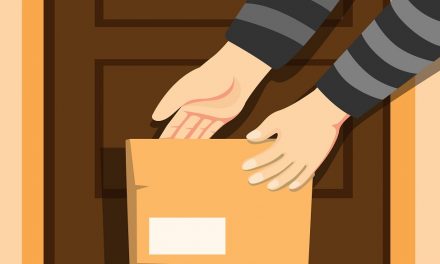
US digital mail providers in push to attract consumers
Digital postal mail providers in the US are now beginning major publicity drives to get consumers to sign up for their services. Publishing giant Hearst brought its Manilla service out of its beta phase this month, and has launched a marketing campaign making the most of its stable of consumer magazines – which includes Marie Claire, Cosmopolitan and Elle magazines – to push the new digital offering.
And, California firm Zumbox has now launched its own consumer campaign, offering people the opportunity to win prizes for signing up to its digital mailbox service, including the chance to win one million dollars.
Other services being offered in the US at the moment to provide an alternative to physical transactional mail include Doxo, a Seattle firm that launched a “digital file cabinet” last year for householders to receive and manage bills, while Pitney Bowes is set to launch a consumer campaign for its Volly service in the second half of 2011.
The companies are particularly keen to chase the more than 80% of consumers still receiving and paying their bills through the physical mail.
Zumbox, which does not have a publishing empire with which to launch its consumer campaign, is making the promise of prizes for 650 people a month that sign up to its digital mail box.
John Payne, CEO of Zumbox, said: “The time for moving from paper to digital postal mail has come. Every household benefits from saving time and eliminating the clutter of paper mail.”
Lifestyle management
Manilla’s approach, meanwhile, is to market itself less as a digital mailbox and more as a lifestyle management service, allowing users to plan their lives and the digital paperwork involved easily from one place.
Along with management of statements and bills, it includes loyalty programs and subscription management, offering to send out reminders for key deadlines coming up. It also offers a channel for Hearst to deliver its magazines digitally.
The company’s CEO George Kliavkoff told Post&Parcel that the service would offer marketing opportunities – taking the place of direct mail – for consumers to receive items of interest such as coupons, but he said it was strictly an opt-in service.
He said Manilla is now working with 680 service providers that account for as much as 85% of mail volumes within their segments, and was gaining 100 to 150 more partners each week. “We’re already at critical mass with this service,” he said, adding that his company was now in discussions with some of the major email service providers that might lead to the Manilla service becoming a “tab” within major email.
When consumers are managing their bills online through Manilla, there will also be display advertising around the website, linked to the providers of the bills being accessed. “They can target the users for advertising as if the users were on their own website,” Kliavkoff said.
Manilla’s multi-service platform approach to digital services, which appears to be similar to the approach of Pitney Bowes’ Volly service, falls in line with recommendations of digital experts at last week’s PostalVision2020 event in Arlington, Virginia, who pointed to the success of similar multi-service platforms like Apple’s iTunes service.
“Still anyone’s market”
The PostalVision event saw the view from experts that the public would not accept too many of these “consolidator” platforms in the marketplace, since a key selling point is to simplify people’s lives and provide a single online access point for people to manage their lives digitally.
However, Larry Weber, the digital PR guru and founder of W2 Group, said at last week’s event: “In the States, it is still anyone’s market. We will see companies coming out of the woodwork but it’s something to watch at the moment.”
Kubra, the company which provides customer management systems for more than 500 banks and utilities, has hedged its bets and after partnering with Zumbox back in February, and has now also partnered with Manilla.
“By partnering with Manilla, we now support the widest array of e-bill and account management aggregation networks available on one common platform,” said Rick Watkin, President and CEO.
The US Postal Service is currently mulling over its own approach to digital mail services at the moment, facing the difficult dilemma of whether it will miss a trick by ignoring the opportunities to provide a digital platform, or whether going forward with such a move would hasten the decline of its physical mail volumes.
There is recognition among existing digital players in the US market that if the Postal Service jumped into the market, it would immediately bring with it the advantage of huge brand recognition and trust.
The Manilla CEO told Post&Parcel that his company would jump at the chance to work with the US Postal Service if it decided to go with a partner to offer digital mail services.
“It’s an impeccable brand that resonates security and a trust factor – obviously if we did partner, we would benefit enormously, and help to grow the USPS business,” said Kliavkoff. “We would be keen to work with them if they can find a way to work with us.”













Oh if only the public knew that 11 years ago the US Postal Service went to Congress with this same idea and the CEO of UPS testified agaisnt the USPS that this was unfair..So Congress made it AGAINST the law for the USPS to do this same thing over 11YEARS AGO…. Here is a highlight from that report.
*For example, USPS has identified
an electronic mailbox, which is a concept in the early development stage
that could link electronic and physical addresses, as an infrastructure
initiative. (YEAR 2000)
Here is the link to the GAO report from Sept 2000.
http://www.gao.gov/archive/2000/gg00188.pdf